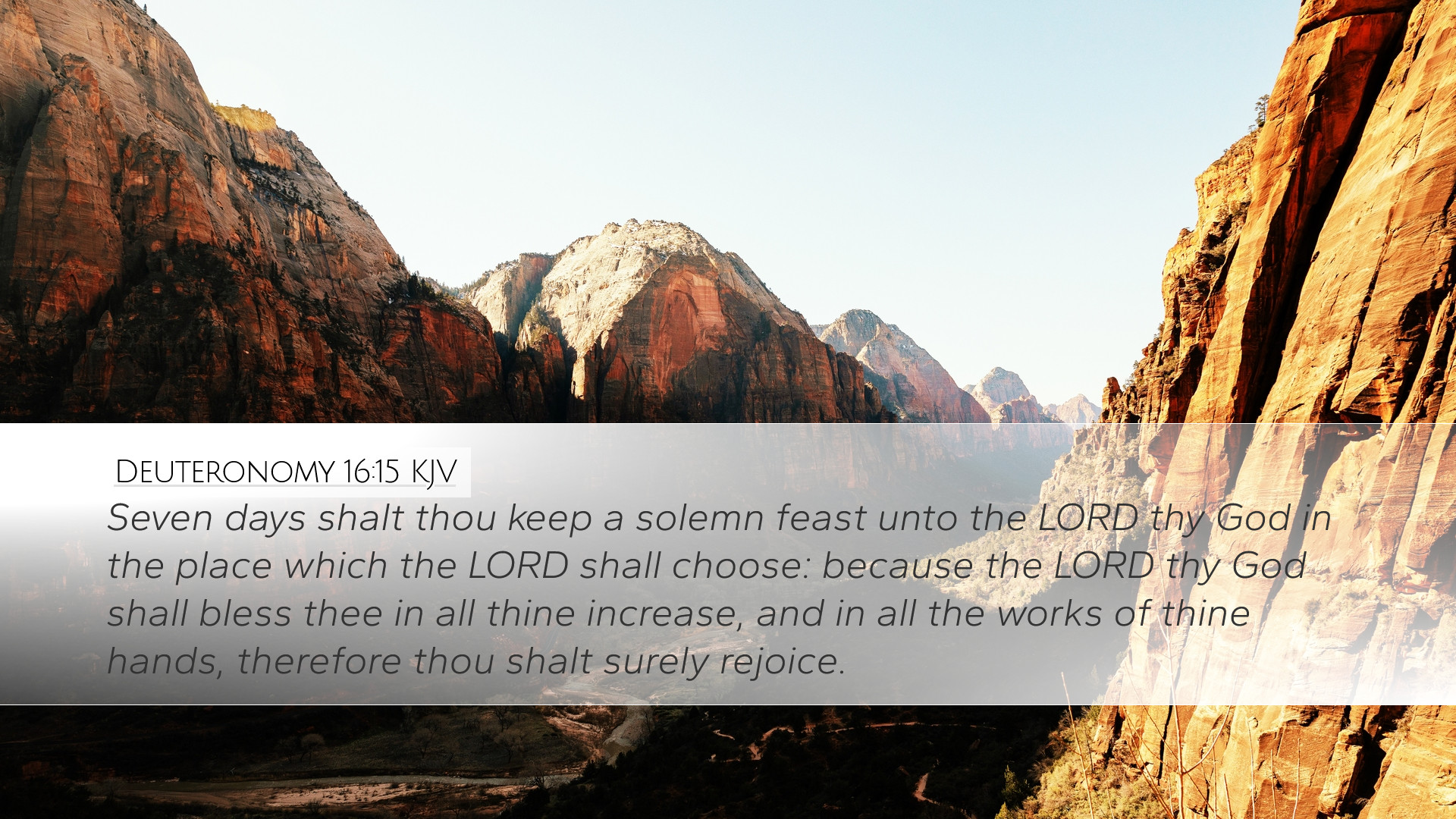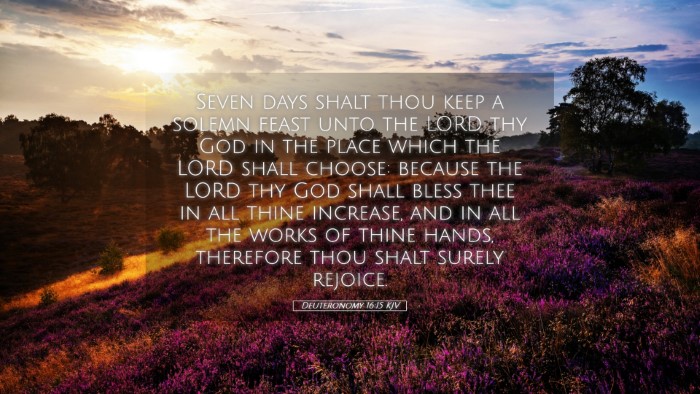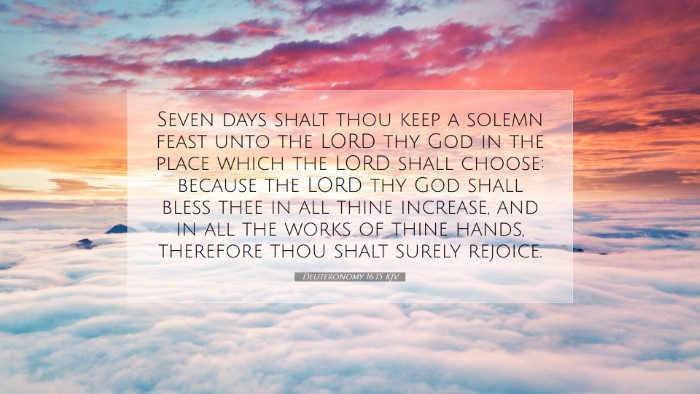Commentary on Deuteronomy 16:15
Verse Text: "Seven days shalt thou keep a feast unto the LORD thy God in the place which the LORD shall choose: because the LORD thy God shall bless thee in all thine increase, and in all the works of thine hands, therefore thou shalt surely rejoice."
Introduction
The verse Deuteronomy 16:15 encapsulates the essence of the feast and the importance of joyful celebration in the presence of God. It emphasizes the prescribed duration and spiritual significance of the feasts in connection with divine blessings and human gratitude. In this commentary, we will weave together insights from renowned public domain commentaries to provide a comprehensive understanding of this passage.
Historical Context
This verse is part of the broader legislative framework established in the book of Deuteronomy, which serves to instruct the Israelites on living in covenant with God. The context of this feast pertains specifically to the Feast of Tabernacles or Sukkot, a harvest festival that also commemorates the Israelites' journey through the wilderness.
Significance of Time
In Deuteronomy, the emphasis on the seven-day duration is critical. According to Matthew Henry, this period serves as a complete cycle in the biblical calendar, symbolizing fullness and divine completion. Each day was an opportunity for the Israelites to reflect on God's goodness and provision.
The Place of Worship
The phrase "in the place which the LORD shall choose" points to the centralization of worship in Israel, as highlighted by Albert Barnes. This principle underscores the importance of community and collective worship rather than individualistic practices, emphasizing that true rejoicing occurs in the context of congregational unity.
Theological Implications
Theologically, this verse demonstrates an essential relationship between divine blessing and human action. As Adam Clarke articulates, the blessings from God motivate the obedience of the Israelites to participate in the feasts. This reciprocal relationship reflects a broader biblical theme where acknowledge of God’s provision naturally leads to expressions of gratitude and celebration.
Divine Blessings
Verse 15 directly connects the joyous celebration to the blessings received in "all thine increase, and in all the works of thine hands." Matthew Henry notes that God's blessings are comprehensive and cover both material and spiritual aspects of life. Thus, the acknowledgment of God's provision is an integral part of worship.
Call to Rejoicing
The imperative to “surely rejoice” emphasizes the active participation of the believer in celebrating God’s blessings. This command serves as a reminder that joy is not a passive state but a choice, requiring the faithful to engage positively with God’s covenant. Albert Barnes highlights that rejoicing is an act of faith, acknowledging God's past provisions and trusting in His future blessings.
Practical Applications
For pastors, students, and theologians, Deuteronomy 16:15 offers several practical insights:
- Celebration as Worship: The act of celebration is an essential aspect of worship. When we celebrate God's blessings, we are not only expressing gratitude but also reinforcing our faith community's shared experiences.
- Centralized Worship: The emphasis on worship in a chosen place speaks to the importance of gathering as believers. Consider the implications of communal worship in your church settings.
- The Cycle of Blessing: Reflect on the cycle of blessing and gratitude in your own life or ministry. Encourage your congregation to recognize God’s hand in their daily lives.
- Joyful Engagement: The command to rejoice is an invitation to foster a culture of joy within the body of Christ. Explore ways to cultivate joy in both personal and communal aspects of life.
Conclusion
In summary, Deuteronomy 16:15 invites us into a deeper understanding of what it means to celebrate God's goodness. Through the lens of public domain commentaries, we see the interconnectedness of worship, community, and the recognition of God's abundant blessings. This passage serves as both an encouragement and a challenge to maintain joy and gratitude in our spiritual journeys, reminding us that our response to God's faithfulness deserves rich celebration.


